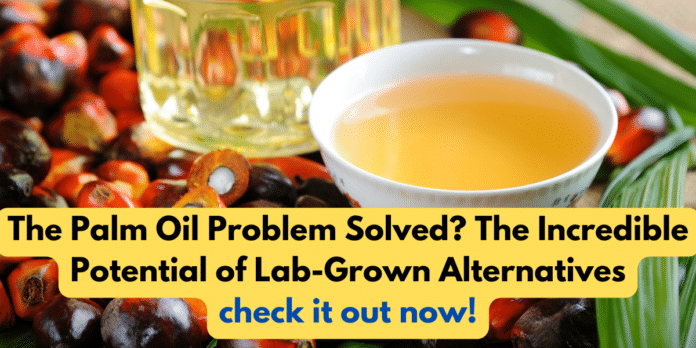The Palm Oil Problem Solved? The Incredible Potential of Lab-Grown Alternatives
In a cutting-edge New York City laboratory, scientists are brewing a groundbreaking alternative to palm oil, and it could revolutionize the products we use daily.
The Incredible Potential of Lab-Grown Alternative – Palm oil problem solved – check it out !
Shara Ticku, co-founder of C16 Biosciences, provided CBS News with an exclusive look inside their lab, where they’re developing a sustainable alternative to palm oil. Central to their process is yeast, which plays a vital role in this innovative creation.
“Palm oil is the ingredient behind hand soaps, foam, and cleansing products,” explained Ticku. “It’s responsible for the long-lasting color in your lipstick and the smooth, spreadable texture of peanut butter.”
Palm oil is the most widely used vegetable oil globally, with over 1.7 million tons consumed in the U.S. alone in 2022, as reported by Statista. However, its versatility comes at a significant environmental cost. Large-scale palm oil production contributes to rainforest destruction and pollution, as highlighted by the World Wildlife Fund. This oil can be found in more than half of the products lining supermarket shelves.
The Roundtable on Sustainable Palm Oil, representing the palm oil industry, acknowledges the development of alternative palm oil solutions. Still, they stress that addressing the immediate impacts of palm oil production requires scalable solutions.
While C16 Biosciences didn’t disclose specific production numbers to CBS News, they did reveal that they generate significant amounts of their palm oil alternative on a weekly basis. Moreover, they’ve formed partnerships with beauty companies and have ambitions to expand into the food industry.
Climate economist Gernot Wagner believes that lab-grown palm oil varieties could hold the key to a sustainable future. However, questions remain about scalability and potential broader environmental and societal consequences.
For Ticku and her team, the evidence of success lies in their innovative process.
“Our current process takes only about six days from start to oil extraction,” Ticku explained. “In contrast, if you were to grow palm trees, it would take a staggering seven years. This underscores the remarkable power of biology in addressing our environmental challenges.”
CHECK OUT BIOTECNIKA GLOBAL FOR MORE UPDATES






